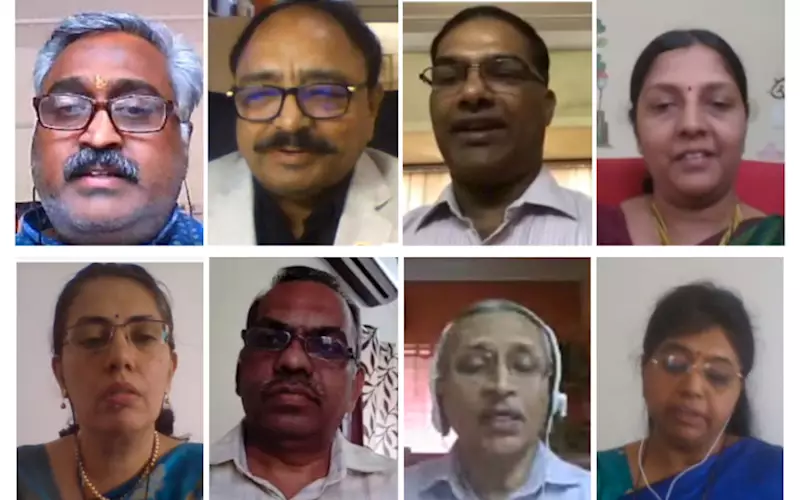Avinashilingam, PVG organises online faculty development programme
The five-day programme, exclusive for the faculties of printing institutes, began on 22 June and will end on 26 June.
25 Jun 2020 | By PrintWeek Team
The Department of Printing Technology, Avinashilingam Institute for Home Science and Higher Education for Women in Coimbatore and Pune Vidhyarthi Griha's College of Engineering and Technology (PVG COET) have jointly organised an online faculty development programme themed “Online tools and techniques for Printing and Packaging”.
Avinashilingam's TKS Lakshmi Priya and PVG's Madhura Mahajan hosted the event.
Mahajan briefed the audience about the objectives, structure and schedule of the faculty development programme. She said the organisers have planned and sequenced the topics of various sessions such that it gives the participants an incremental learning each day.
"To keep the participants connected with the industry scenario, each of the sessions were structured to have one academician and one industry person as speakers. Further, to enforce and give hands-on experience on the online teaching-learning methodologies, participants were expected to submit assignments for each session, online," Mahajan added.
Sunil P Redekar, director at PVG COET, mentioned that the century-old PVG institution primarily caters to the students of the lower economic segment. "With branches in Nashik, Mumbai, Navi Mumbai apart from Pune, the institute has many courses under its umbrella, starting from early schooling to PhD," he said.
Briefing on the history of the institute, KN Rajarao, director at Avinashilingam Institute, said, "The institute was founded by TS Avinashilingam, the first education minister of Madras Presidency, in 1957. This institution is exclusively for educating women, from pre-schooling up to doctoral programmes in various disciplines including six branches in engineering."
In his speech, Rajarao highlighted the plight of students and staff during the pandemic. He said that it is the right time to conduct web-based programmes.
Whereas, Kalyani Kulkarni, principal of PVG COET, emphasising on the nuances of eLearning, said, "The teaching fraternity should get adapted and experienced in ICT-based tools and high quality pedagogy with due responsibility. Therefore, the role of a teacher is in creating a better citizen and not merely imparting education."
Dr Rajendra Kumar Anayath, vice-chancellor at Deenbandhu Chhotu Ram University Of Science And Technology, Haryana said that he foresees a future where most of the education will be online and teachers will carry out administrative tasks at the backend of the online education platform. "Actual teaching will be done by robots and smart bots. With technologies such as cloud computing and artificial intelligence taking the front stage, education will turn to social behaviour, circular economy and globalisation," he added.
Kamal Chopra, former president of All India Federation of Master Printers said that this lockdown must provoke everyone to find opportunities. "To keep pace with international standards, Indian printing institutions must set up facilities for online education with infrastructure, simulators, and software-based solutions for all the topics in printing."
Dayakar Reddy, president, GIPT, Secunderabad Alumni Association, highlighted the need for interaction between the industry and teachers so that teachers will know the industry scenario and accordingly groom the students ready for the industry. He advised the faculty members to enforce a strict self-learning regime to the students where the students must browse the Internet for topics within and outside the curriculum.
Of the total 91 registrations, four were from Egypt, Ukraine, Brazil and Columbia, whereas three were trainers from printing and allied industries.











 See All
See All